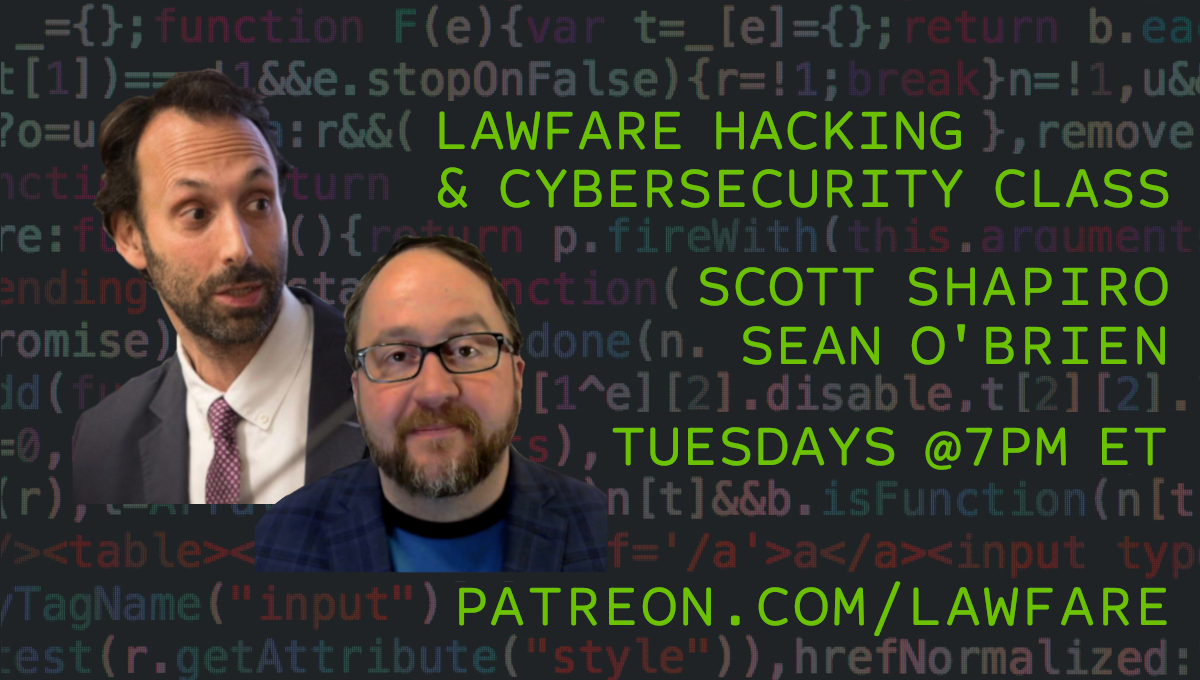Can You Hack It? Find Out In Our Lawfare Class
We're bringing hacking and cybersecurity education to a remote cohort of Lawfare's material supporters and challenging them to become hackers themselves. There's still time to join us.

Published by The Lawfare Institute
in Cooperation With

Last week on Lawfare, Scott J. Shapiro and I set out on a journey: We're bringing hacking and cybersecurity education to a remote cohort of Lawfare's material supporters and challenging them to become hackers themselves. There's still time to join us. Sign up for the next class, watch the replay from the first session, and read the class materials so far. If you're on the fence, you should know that no computer programming experience or math expertise is necessary.
Students will be helping us build a truly unique and public resource. By the end of the course, a diverse group of 120+ curious learners—veterinarians, nurses, K-12 teachers, and more—will have demonstrated their own "hacks" that mimic real-world attacks. The only victims are virtual machines and dummy systems that resemble the vulnerable cyber landscape all around us. Students may submit their hacks for a competition near the end of the course and we'll devote a few classes to examining the best hacks.
Luckily for everyone, this is not our first rodeo. Scott and I started developing a hands-on hacking curriculum at Yale Law School in 2018 and just wrapped up teaching it again at Yale a few months ago. In that curriculum, we transform law students into savvy cyber sleuths and build their skills from the command line on up.
Hacking is a valuable real-world skill for professionals and amateurs alike, and Lawfare is helping us to widen the net beyond the hallowed halls of Yale to a global audience. As with most skills, the tools and techniques we teach can be used for good or evil. We care about ethics and not only teach you how to better protect yourself but also how to avoid endangering others.
In the first session, we gave an outline of the course. Scott's mom called for tech support. We set up a virtual machine environment using free and open source software, and then we configured and booted an operating system built for hacking and penetration testing. Before taking questions from the class, we walked them through basic commands and navigated the filesystem. You can try these tasks yourself by reading through the class materials in our github repository and watching the linked videos.
We're delighted at the response to the first session and will continue to bring you a mix of high quality and quirkiness. Whether or not you're wearing a hoodie, after all, hacking is meant to be fun.


.png?sfvrsn=4156d4f8_5)
-(1)-(1).png?sfvrsn=1bc11cd_4)

